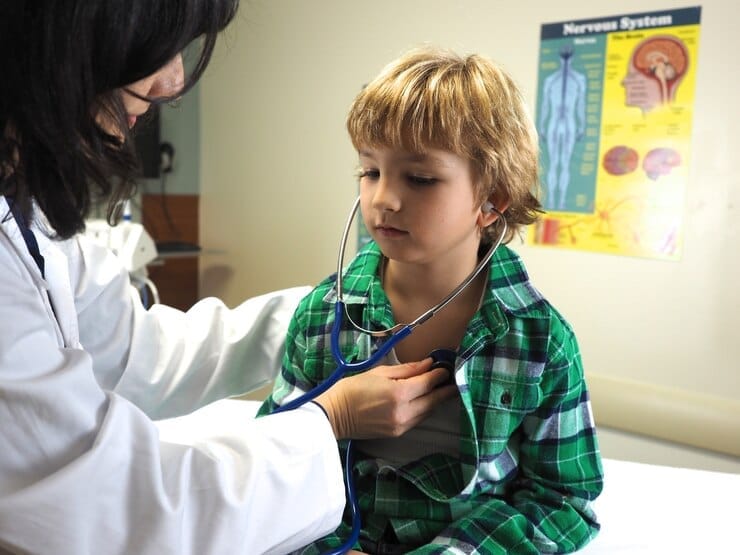Introduction
In the journey of parenting, ensuring the health and well-being of your child is paramount. Pediatric medicine plays a pivotal role in safeguarding the health of children from infancy through adolescence. From routine check-ups to specialized care, understanding the intricacies of pediatric medicine is crucial for every parent.
Pediatric medicine encompasses a wide array of healthcare services tailored specifically for children. It focuses on the unique needs and developmental stages of infants, children, and adolescents. Pediatricians are trained professionals specializing in the diagnosis, treatment, and prevention of childhood illnesses, injuries, and developmental disease.
Immunizations: A Cornerstone of Pediatric Care
Immunizations play a crucial role in safeguarding children against preventable diseases. Pediatricians adhere to immunization schedules recommended by health authorities to ensure children receive essential vaccines at the right time. By vaccinating your child, you not only protect their health but also contribute to community immunity, preventing the spread of contagious diseases.
Developmental Milestones and Early Intervention
Monitoring developmental milestones is crucial for identifying any potential developmental delays or disorders early on. Pediatricians track key milestones in areas such as motor skills, language development, and social interactions during routine check-ups. Early intervention programs and therapies can significantly improve outcomes for children with developmental concerns, emphasizing the importance of timely assessment and support.
Pediatricians provide specialized care for various pediatric conditions and concerns. From chronic disease such as asthma and diabetes to behavioral and mental health disorders, pediatric specialists offer comprehensive evaluation and management options. Collaborating with pediatric subspecialists ensures that children receive optimal care tailored to their specific needs.
Common Childhood Illnesses and Their Management
Children are susceptible to a range of illnesses, from common colds to more severe conditions. Understanding the symptoms, treatment options, and preventive measures for common childhood illnesses empowers parents to provide prompt care.

- Common Cold and Upper Respiratory Infections:
- Symptoms: Runny nose, nasal congestion, sneezing, coughing, mild fever, sore throat.
- Management: Encourage rest, maintain hydration, use saline nasal drops for congestion relief, administer over-the-counter pain relievers for fever and discomfort (under the guidance of a healthcare provider), and ensure proper hand hygiene to prevent the spread of the virus.
- Flu (Influenza):
- Symptoms: High fever, body aches, chills, headache, sore throat, cough, fatigue.
- Management: Encourage rest, maintain hydration, administer antiviral medications (if prescribed by a healthcare provider), use over-the-counter pain relievers for fever and body aches, and practice respiratory hygiene to prevent transmission.
- Gastroenteritis (Stomach Flu):
- Symptoms: Nausea, vomiting, diarrhea, abdominal pain, fever, dehydration.
- Management: Encourage oral rehydration solutions to prevent dehydration, offer bland foods (e.g., rice, bananas, toast), avoid dairy and fatty foods, administer antiemetic medications (if prescribed by a healthcare provider).
- Ear Infections (Otitis Media):
- Symptoms: Ear pain, fever, irritability, difficulty sleeping, fluid drainage from the ear.
- Management: Administer over-the-counter pain relievers for pain and fever, apply warm compresses to the affected ear, encourage rest, and consult a healthcare provider for antibiotic treatment if necessary.
- Strep Throat:
- Symptoms: Sore throat, difficulty swallowing, fever, swollen lymph nodes, red and swollen tonsils with white patches.
- Management: Seek medical evaluation for diagnosis and treatment with antibiotics (if bacterial), encourage rest, maintain hydration, and administer over-the-counter pain relievers for fever and throat pain.
- Hand, Foot, and Mouth Disease:
- Symptoms: Fever, sore throat, painful mouth sores, rash on hands, feet, and buttocks.
- Management: Provide supportive care with rest, hydration, soft foods, and over-the-counter pain relievers for fever and discomfort.
- Conjunctivitis (Pink Eye):
- Symptoms: Redness, itching, tearing, discharge, crusty eyelids, light sensitivity.
- Management: Practice good hygiene, avoid touching or rubbing the eyes, use over-the-counter artificial tears for comfort, apply warm compresses to the eyes, and seek medical evaluation for appropriate treatment (e.g., antibiotic eye drops for bacterial conjunctivitis).
It’s essential to consult a healthcare provider for proper diagnosis and treatment recommendations, especially for persistent or severe symptoms. Additionally, preventive measures such as vaccination, hand hygiene, and maintaining a healthy lifestyle can help reduce the risk of common childhood illnesses.
